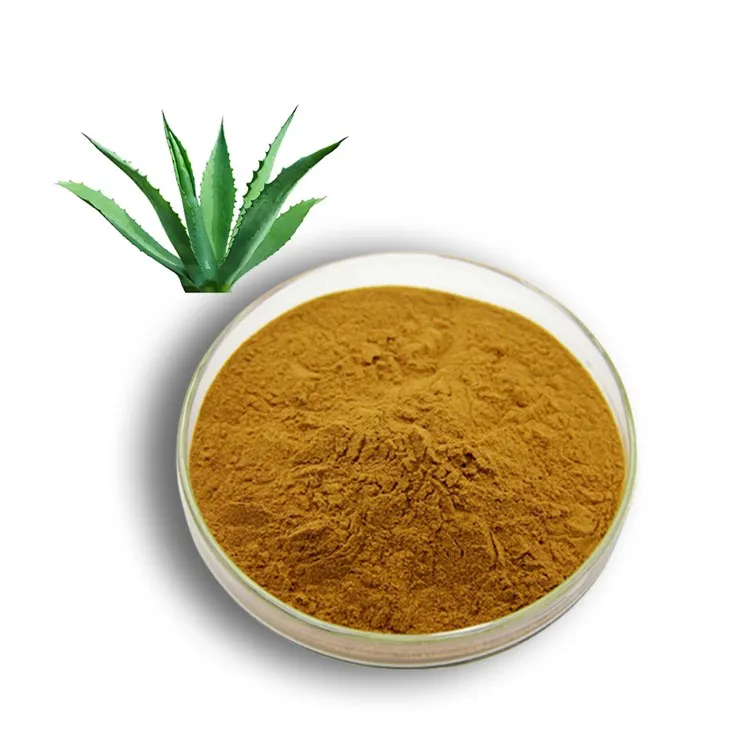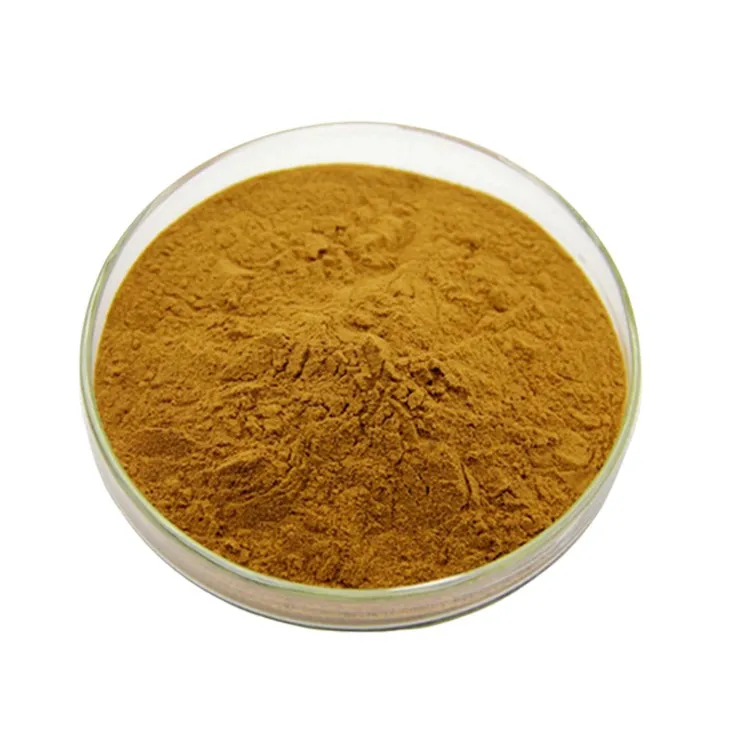- 0086-571-85302990
- sales@greenskybio.com
Active components in aguaje extract.
2024-11-30

1. Introduction
Agave, a genus of plants native to the Americas, has been used for various purposes for centuries. The extract of agave contains a rich variety of active components that are of great significance in multiple fields. These active ingredients not only offer potential benefits in human health but also play important roles in ecological and agricultural aspects. This article will comprehensively explore the different active components in agave extract, including alkaloids, phenolic compounds, and terpenoids.

2. Alkaloids in Agave Extract
2.1 Definition and General Characteristics
Alkaloids are a class of nitrogen - containing organic compounds that are typically found in plants. In agave extract, alkaloids are among the important active components. They are known for their diverse chemical structures and biological activities. Alkaloids often have complex ring - like structures and can be classified into different types based on their chemical features.
2.2 Pharmacological Activities
- Antimicrobial Activity: Some alkaloids in agave extract may exhibit antimicrobial properties. They can potentially inhibit the growth of bacteria, fungi, or other microorganisms. For example, research has shown that certain alkaloid - rich fractions of agave extract can be effective against common pathogenic bacteria such as Staphylococcus aureus.
- Anti - inflammatory Effects: Alkaloids may also play a role in reducing inflammation. Inflammatory processes are associated with a variety of diseases, and the anti - inflammatory activity of alkaloids in agave extract could potentially be beneficial in treating conditions such as arthritis or other inflammatory disorders.
- Potential Analgesic Effects: There is evidence to suggest that alkaloids in agave extract may have analgesic (pain - relieving) properties. This could be due to their interaction with pain receptors or modulation of pain - related signaling pathways in the body.

3. Phenolic Compounds in Agave Extract
3.1 Types and Structures
Phenolic compounds in agave extract are a diverse group. They include phenolic acids, flavonoids, and tannins. Phenolic acids, such as caffeic acid and ferulic acid, have a relatively simple structure with a phenolic ring and an acid group. Flavonoids, on the other hand, have a more complex structure consisting of two benzene rings connected by a three - carbon chain. Tannins are polymers of phenolic compounds and are known for their ability to bind to proteins.
3.2 Antioxidant and Antimicrobial Capabilities
- Antioxidant Activity: One of the most prominent features of phenolic compounds in agave extract is their antioxidant activity. Antioxidants are substances that can neutralize free radicals, which are highly reactive molecules that can cause damage to cells. The phenolic compounds in agave extract can donate electrons to free radicals, thereby stabilizing them and preventing oxidative damage to cells. This antioxidant activity is important for maintaining overall health and may play a role in preventing chronic diseases such as cancer, heart disease, and neurodegenerative disorders.
- Antimicrobial Properties: In addition to their antioxidant activity, phenolic compounds in agave extract also possess antimicrobial capabilities. They can disrupt the cell membranes of microorganisms, inhibit their enzyme activities, or interfere with their metabolic processes. For example, flavonoids in agave extract have been shown to be effective against certain fungal species.

4. Terpenoids in Agave Extract
4.1 Classification and Occurrence
Terpenoids are a large and diverse group of organic compounds that are synthesized by plants. In agave extract, terpenoids are commonly found. They can be classified into different subgroups based on the number of isoprene units they contain. Monoterpenoids contain two isoprene units, sesquiterpenoids contain three, diterpenoids contain four, and so on. Terpenoids are often responsible for the characteristic scents and flavors of plants.
4.2 Influence on Biological Processes
- Plant - Insect Interactions: Terpenoids in agave extract can play a significant role in plant - insect interactions. Some terpenoids act as attractants for pollinators, such as bees and butterflies. They release a characteristic scent that can guide these insects to the flowers for pollination. On the other hand, some terpenoids can act as repellents against herbivorous insects. For example, certain diterpenoids in agave plants can deter insects from feeding on the leaves.
- Potential in Human Health: Terpenoids may also have potential benefits in human health. Some terpenoids have been studied for their anti - cancer properties. They can induce apoptosis (programmed cell death) in cancer cells or inhibit the growth and metastasis of tumors. Additionally, terpenoids may have anti - inflammatory and immunomodulatory effects.
5. Research Significance in Human Health
- Disease Prevention: The active components in agave extract, such as phenolic compounds with antioxidant activity, may contribute to disease prevention. By reducing oxidative stress, they can lower the risk of developing chronic diseases like cancer, diabetes, and cardiovascular diseases.
- Treatment of Specific Conditions: Alkaloids with analgesic and anti - inflammatory properties, as well as terpenoids with potential anti - cancer effects, could be explored for the treatment of specific medical conditions. For example, further research may lead to the development of new drugs based on these active components for the treatment of arthritis or cancer.
- Nutritional Supplements: Agave extract or its active components may also be used as nutritional supplements. They can provide additional health - promoting benefits, such as enhancing the immune system or improving digestion.
6. Ecological and Agricultural Significance
- Ecological Role: In the ecosystem, the terpenoids in agave plants play important roles in plant - insect interactions. They help maintain the balance between plants and insects, which is crucial for the stability of the ecosystem. For example, the repellent effect of terpenoids on herbivorous insects can protect agave plants from excessive damage, ensuring their survival and reproduction.
- Agricultural Applications: The knowledge of active components in agave extract can also be applied in agriculture. For instance, the antimicrobial properties of alkaloids and phenolic compounds can be used to develop natural pesticides or fungicides. This can reduce the reliance on synthetic chemicals in agriculture, which is beneficial for environmental protection and sustainable farming.
7. Conclusion
The active components in agave extract, including alkaloids, phenolic compounds, and terpenoids, are of great value. Their diverse biological activities have implications in human health, ecological balance, and agricultural development. Further research is needed to fully understand the mechanisms of action of these active components and to explore their potential applications in various fields. With continued investigation, agave extract may offer new solutions for health, environmental, and agricultural challenges.
FAQ:
What are the main active components in agave extract?
The main active components in agave extract include alkaloids, phenolic compounds, and terpenoids. Alkaloids may have pharmacological activities. Phenolic compounds are known for their antioxidant and antimicrobial capabilities, and terpenoids can influence biological processes such as plant - insect interactions.
What pharmacological activities might the alkaloids in agave extract have?
The text doesn't specifically mention the exact pharmacological activities of the alkaloids in agave extract. However, generally, alkaloids can have various pharmacological activities such as effects on the nervous system, cardiovascular system, or potential anti - inflammatory effects, but more research is needed to determine their specific actions in the context of agave extract.
How do phenolic compounds in agave extract contribute to antioxidant and antimicrobial activities?
Phenolic compounds have hydroxyl groups that can donate electrons, which helps in scavenging free radicals, thus contributing to antioxidant activity. For antimicrobial activity, they can disrupt the cell membranes of microorganisms, interfere with their enzyme systems, or affect their metabolic processes.
What role do terpenoids in agave extract play in plant - insect interactions?
Terpenoids can play different roles in plant - insect interactions. They can act as attractants for pollinators, or in some cases, as repellents against herbivorous insects. They may also be involved in plant defense mechanisms against insect pests.
How can the research on active ingredients in agave extract benefit human health?
The research on active ingredients in agave extract can benefit human health in multiple ways. For example, if the alkaloids have beneficial pharmacological activities, they could be developed into drugs. The antioxidant properties of phenolic compounds can help prevent oxidative stress - related diseases. Understanding these components may also lead to the development of new dietary supplements or functional foods.
Related literature
- Active Components in Agave: A Comprehensive Review"
- "The Bioactive Compounds of Agave and Their Potential Applications in Health"
- "Terpenoids in Agave: Their Ecological and Potential Health Significance"
- ▶ Hesperidin
- ▶ Citrus Bioflavonoids
- ▶ Plant Extract
- ▶ lycopene
- ▶ Diosmin
- ▶ Grape seed extract
- ▶ Sea buckthorn Juice Powder
- ▶ Fruit Juice Powder
- ▶ Hops Extract
- ▶ Artichoke Extract
- ▶ Mushroom extract
- ▶ Astaxanthin
- ▶ Green Tea Extract
- ▶ Curcumin
- ▶ Horse Chestnut Extract
- ▶ Other Product
- ▶ Boswellia Serrata Extract
- ▶ Resveratrol
- ▶ Marigold Extract
- ▶ Grape Leaf Extract
- ▶ New Product
- ▶ Aminolevulinic acid
- ▶ Cranberry Extract
- ▶ Red Yeast Rice
- ▶ Red Wine Extract
-
Boswellia Serrata Extract
2024-11-30
-
Beetroot juice Powder
2024-11-30
-
Grape Leaf Extract
2024-11-30
-
Lemon Juice Powder
2024-11-30
-
Tormentil Extract
2024-11-30
-
Pomegranate Extract
2024-11-30
-
Propolis Extract Powder
2024-11-30
-
Diosmin
2024-11-30
-
Giant Knotweed Extract
2024-11-30
-
Phellodendron Extract
2024-11-30





















